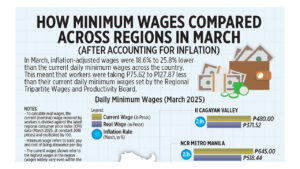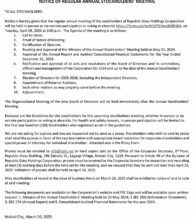BI warns against trafficking for online scam hubs

THE Bureau of Immigration (BI) has warned Filipinos about the use of Telegram and Facebook by international trafficking syndicates to recruit workers for online scam hubs in Southeast Asia.
Commissioner Joel Anthony M. Viado, in a statement on Sunday, said the agency intercepted 125 trafficking victims in 2024, underscoring the growing prevalence of so-called “catphishing” schemes — fake job offers through social media.
“The Philippine government has been resolute in its anti-human trafficking efforts for nine years, and we are more determined than ever to bring traffickers to justice,” he said.
The announcement comes as the Philippines marks its ninth straight year as a Tier 1 country in the US State Department’s 2024 Trafficking in Persons report.
The report assesses global efforts to combat human trafficking and assigns countries to one of three tiers based on their compliance with the minimum standards outlined in the Trafficking Victims Protection Act.
A Tier 1 ranking indicates that a country’s government fully meets these minimum standards. However, it does not imply the absence of human trafficking.
In the latest incident, the Immigration bureau said four people — three men and one woman — were prevented from boarding a flight to Malaysia on March 28 after being misled by unscrupulous recruiters.
The victims were deceived by fraudulent social media ads offering high-paying jobs and were later coerced into creating fake online personas, often used in love scam operations.
In March, 206 Filipinos were repatriated after being trafficked to Myawaddy, Myanmar, where they were forced to work in cyber-fraud operations.
Majority of victims were between the ages of 20 and 44, largely college-educated, and hail from Metro Manila and neighboring regions, according to bureau data.
Traffickers often disguise the scam as employment in local business process outsourcing (BPO) firms, and once recruited, victims are sent to hubs in Malaysia, Cambodia, Laos, or Myanmar, all of which have emerged as hotspots for digital fraud networks.
Social media platforms, primarily Facebook and the messaging platform Telegram, are key tools used by syndicates to reach targets.
The bureau said it is working closely with the Department of Justice’s Inter-Agency Council Against Trafficking to monitor online recruitment and intercept potential trafficking victims at exit points nationwide. — Chloe Mari A. Hufana




